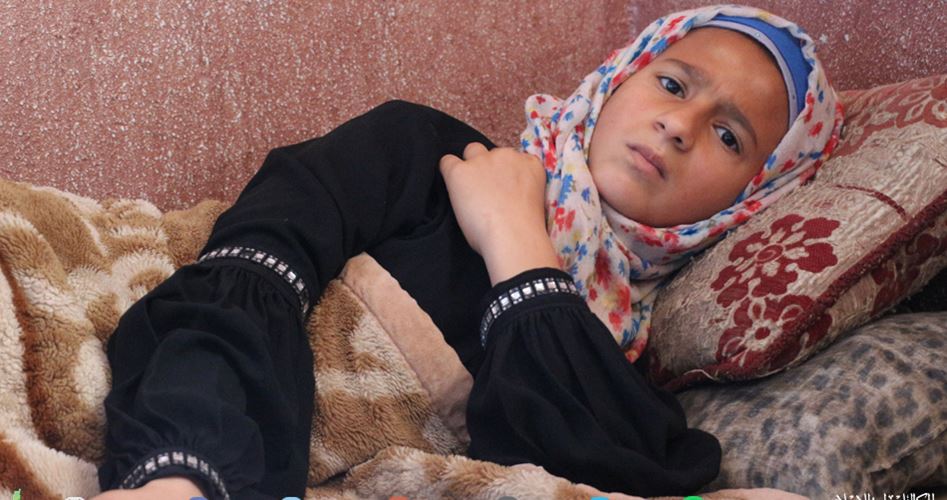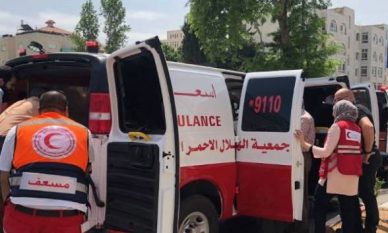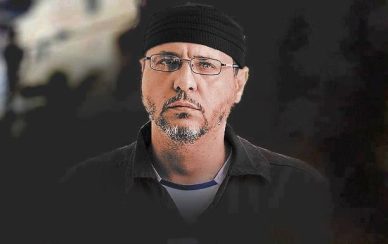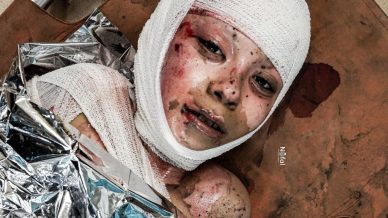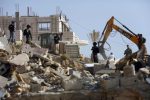When Malak approached the separation fence on the border of the town of Khuza’a east of Khan Younis a female Israeli soldier raised her thumb and then shot her making her soak in her blood.
With child innocence the 13-year-old Malak carried a Palestinian flag on her shoulder. She went with her brother Abdullah 10 years old to participate in the events of the Great March of Return east of Khan Younis on April 12 2018 but the bullets of the Israeli occupation troops forced her to bed.
Israeli snipers fire extremely explosive bullets at the participants in the events of the Great March of Return on the border of Gaza which led to the death of dozens and the wound of hundreds many of whom ended up with permanent disabilities.
Wounded
Pain toes down the body of Malak as she speaks about her story. She stops and sometimes sighs unable to go on in the narration of what happened to her as her health has dramatically deteriorated after three shrapnel settled between the veins of her shoulder and neck.
When she approached the border fence she saw two Israeli military vehicles one of which fired tear gas heavily at the protesters and the other opened fire around her targeting Palestinian youths who sat tires on fire in protest.
Malak went to fetch a drinking water bottle from one of the tents and then returned to watch what was happening while still carrying the Palestinian flag meters away from the border fence.
She added: “When I approached the border there were six snipers near a dirt cover and then a female soldier came and pointed at me. A young man next to me was shot in the legs and I was injured by shrapnel.”
Victim of the occupation
Malak felt a warmth in her shoulder and neck after one of the young men fell down next to her after being shot in the leg with an explosive bullet. When she saw her own blood she screamed and the participants in the peaceful protest carried her to the ambulance along with the injured young man.
At Gaza’s European Hospital medical assistance was provided to her but doctors found three explosive shrapnel in her shoulder. They settled in the veins between her neck and shoulder. They covered her wounds and decided to do a surgery for her two weeks later.
Shehada al-Shawaf the father of Malak said that her wound causes severe pain all night. She is no longer attending school. He wondered what danger would his 7th grader pose to the occupation soldiers.
He adds “A female soldier shot and wounded her in the neck and shoulder. Two weeks later a shrapnel will be removed while the other two shrapnel will remain between her veins until doctors decide what to do next.”
Malak sticks to her sickbed in her family’s house in the village of Abasan in Khan Younis while her father is unable to provide the treatment prescribed by the doctor which is needed to treat the infection before undergoing the urgent surgery because of his poor financial condition.

